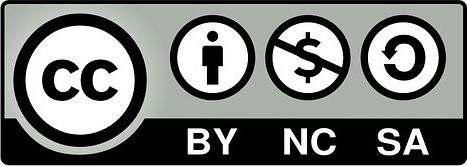La temperatura cinética media en los estudios de estabilidad a largo plazo y almacenamiento de los medicamentos
DOI:
https://doi.org/10.17533/udea.vitae.455Keywords:
temperatura cinètica media, estudios de estabilidad, zonas climàticas, tiempo de vida ùtil, mean kinetic temperature, stability studies, climatic zones, shelf lifeAbstract
La temperatura cinética media (TCM) es un parámetro internacionalmente aceptado para definir las condiciones de temperatura en los estudios de estabilidad a largo plazo y las condiciones a las cuales se deben almacenar los medicamentos. En este artículo, se define la TCM y se discute su importancia, al igual que sus diferencias con la temperatura promedio. También, se hace una descripción de las diferentes metodologías utilizadas para el cálculo de la misma. Finalmente, se presenta la forma como este concepto se utilizó en la definición de las condiciones de temperatura de las Zonas Climáticas, que determinan los estudios de estabilidad a largo plazo de medicamentos. El presente trabajo recopila algunas revisiones bibliográficas de investigaciones y artículos relacionados con este tema durante un periodo de 39 años, comprendido entre 1964 y 2003.Downloads
Downloads
Published
How to Cite
Issue
Section
License
Copyright Notice and Open Access Statement
The Journal Vitae works under the Open Access license, and the published manuscripts remain available for the public, both on the Journal's website and in databases, under the Creative Commons license, "Noncommercial Attribution" and "Share alike" systems, adopted in Colombia. Hence, when the authors agree to publish in the Journal Vitae, they will not have the right to economic retributions on publications and reproductions through different diffusion media. The documents are freely available to the internet public, permitting users to read, download, copy, distribute, print, search, or link to the full texts and pass them as data to software. The only constraint on reproduction and distribution, should be to give authors control over the integrity of their work and the right to be appropriately acknowledged and cited.
Authors declare that:
-
They are the intellectual property owners and are responsible for all the information stated in the article.
-
This manuscript has not been submitted or published in other printed or digital media. They accept the responsibility for the judgments, opinions, and points of view expressed in the published article and, therefore, they exonerate Universidad de Antioquia and Journal Vitae from any process.
-
They exempt Universidad de Antioquia and Journal Vitae from settling conflicts or disputes related to the authorship of the referred article.
-
They accept the revision of the original manuscript by suitable personnel, and they bind themselves to perform the corrections appointed or suggested by the assessors.
-
Therefore, they know the editorial process and will not bind the Editorial Board of the Journal to assume any obligations regarding the volume and issue in which the article is published.
-
They transfer the rights of publication, reprinting, and distribution of the article from the moment of its approval, in print and digital format, without the right to economic rewards, and under the licensing conditions considered relevant by Journal Vitae.
-
They fully authorize Universidad de Antioquia and Journal Vitae to submit the published material to the diverse databases and indexing systems where the Journal can be found to comply with the requirements of the regulatory authorities to maintain the national classification of journals.
-
They will assume the article publication costs established for the current issue, and they will make the payment as soon as they are informed about the volume and the issue in which the final version of the article is published.
-
After the article is published, you can share digital or printed copies in a noncommercial manner. You will be able to use the paper in your institution or company for educational or research purposes, including the use in course programs.
Conflict of interest: Authors are responsible for recognizing and disclosing any financial or other benefits that could be perceived to bias their work, acknowledging all financial support and any personal connections with potential sponsors. Examples of such conflicts include receiving research funds or honoraria, serving on advisory boards, stock ownership, or employment and consulting arrangements. Authors without such connections should clearly state that they have no financial support or personal relationships that could be perceived to bias their work. All conflicts of interest should be disclosed on the author's identification page of the manuscript.










